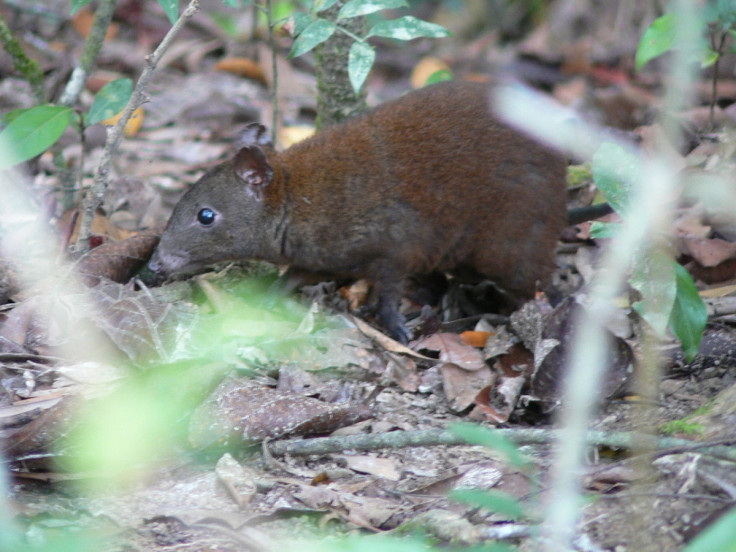Musky Rat: World's Smallest Kangaroo at Risk of Extinction from Global Warming

The world's smallest species of kangaroo is at risk of extinction because of the effect of global warming of tropical rainforests.
According to research published in the Journal of Vertebrate Paleontology, musky rat-kangaroos are unable to survive outside of the tropical rainforest as they have not diversified to adapt to other environments.
Researchers from the University of Queensland and The University of New South Wales are calling for better protection of tropical rainforests to help protect the species.
According to a 2009 report by the Australian Broadcasting Corporation, the species is now endangered because its habitat is being replaced by houses and golf courses. It is known as a living fossil because it has existed in a form similar to that found today for the last 26 million years.
Kenny Travouillon, from the University of Queensland, said musky rat-kangaroo fossils show they have never been found outside of tropical rainforests, suggesting they have never evolved to survive in other conditions, such as temperate rainforests.
Around 20 million years ago, there were several different species of the musky rat-kangaroo. However, now there is just one living in a small rainforest area in Queensland.

"We must carefully monitor the tropical rainforest because if climate change does affect it, the musky rat-kangaroo, and possibly other species, will have nowhere else to go," Travouillon said.
"The musky rat-kangaroo, along with the cassowary, is one of only two species essential to the rainforest as seed-dispensers. We need to carefully protect its habitat because it is too specialised to be relocated elsewhere and is an important contributor to its environment."
Measuring between 21cm and 34cm long, the kangaroo species lives on fruit and large seeds that fall from trees and small insects.
Researchers said that their findings are significant because only two other fossil species of musky rat-kangaroo have ever been found.
"Such finds help us better understand how animals and ecosystems evolve through climatic change, allowing us to better predict their responses to future climate change and protect the most vulnerable species.
"Scientists don't all agree about what will happen to the tropical rainforest in Australia as a result of climate change, but the Australian Climate Council reports it can have a major effect."
Speaking to LiveScience, he added: "We need to carefully protect [the musky rat-kangaroo's] habitat, because it is too specialised to be relocated elsewhere and is an important contributor to its environment."
© Copyright IBTimes 2025. All rights reserved.






















